Winter 2023 Seminars
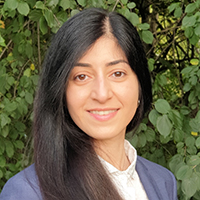
January 5, 2023
Fatemeh Salehi
Associate Professor, Macquarie University
Hydrogen safety and reliability for sustainable mobility
Abstract:
Hydrogen can create a practical pathway to replace fossil fuels and address decarbonization challenges, particularly for sectors such as aviation. However, safety concerns need to be addressed when adopting this alternative since a failure in operation can result in catastrophic consequences. The safety and reliability analysis supports the development of consistent national and international codes and standards and the creation of clear procedures and regulations which are essential for the safe implementation and adaptation of hydrogen systems. This talk will discuss the use of advanced computational modeling for hydrogen safety with a key focus on consequence modeling to minimize the impact of hydrogen accidents. This includes hydrogen leakage, dispersion and fire scenarios.
Bio:
Dr. Fatemeh Salehi is an Associate Professor at the School of Engineering, Macquarie University, Australia. Her expertise is in the development of physical models for computational fluid dynamic (CFD) simulations of single- and multi-phase flows to advance low-emission and safe engineering solutions. She is particularly interested in clean fuels such as hydrogen which has the potential to address decarbonization challenges. Her research in the field of hydrogen is recognized in the NSW Hydrogen Strategy published by New South Wales Government, Australia in 2021. She is an executive member of the Combustion Institute (ANZ) and a member of the Working Groups of Standards Australia for the development of hydrogen standards.

January 12, 2023
Xin Ning
Assistant Professor, Department of Aerospace Engineering, Pennsylvania State University
Morphable Intelligent Space Structures
Abstract:
In the future, space structures may be highly intelligent active systems that can morph, adapt, sense, communicate, manage energy, process data, grow, and regenerate like biomaterials and biosystems. If such structures are realized, they may serve as the structural foundation to enable truly intelligent space systems (e.g., spacecraft, space robots, and space architectures) that can pass Turing test. This talk will include several of our group’s efforts to pursue this challenging goal. The talk will begin with our work on developing a multifunctional bistable ultrathin composite boom for a 3U CubeSat that is scheduled to be launched to space in early 2023, followed by discussions on the mechanics of bistable booms. I will then present our research on soft electronic skins and microsystems for morphable space structures from a broader perspective beyond the bistable booms. I will conclude the talk with my views on future collaborative, interdisciplinary, and long-term research that needs to be done to realize highly intelligent morphable space structures.
Bio:
Dr. Xin Ning has been an assistant professor in the Department of Aerospace Engineering at Pennsylvania State University since August 2018. Dr. Ning was a postdoctoral research associate from 2015 to 2018 at UIUC, where he worked on soft electronics. Dr. Ning received his Ph.D. in Aeronautics in 2015 from Caltech, where he studied buckling-resistant thin shells. Dr. Ning’s research focuses on aerospace structures with interdisciplinary work across mechanics, soft electronics, bioelectronics, etc. His group has been supported by AFOSR, NASA, ONR, NSF, and various other external and internal grants. Dr. Ning is a recipient of several awards such as William F. Ballhaus Prize for outstanding doctoral dissertation in aeronautics at Caltech, ONR Young Investigator Award, and ASME Haythornthwaite Foundation Research Initiation Award.
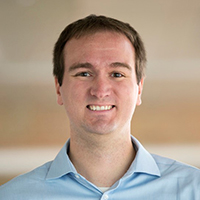
January 19, 2023
Aaron Towne
Assistant Professor, Mechanical Engineering, University of Michigan
Resolvent-based estimation and control of turbulent flows
Abstract:
Flow estimation and control provide a path forward toward achieving many important engineering objectives, such as decreasing drag, delaying flow separation and transition, and reducing flow-generated noise. While state estimation and control are classical topics in dynamical systems and control theory, standard methods have several disadvantages when applied to turbulent flows, including high cost and restrictions in their ability to incorporate key physics. In this presentation, I will describe an alternative framework for optimal flow estimation and control formulated in terms of resolvent operators obtained from the Navier-Stokes equations, which have been shown to efficiently describe organized motions within turbulent flows. The resolvent-based framework provides a hierarchy of methods for different tasks, including space-time statistical modeling, flow-field reconstruction in the time domain, real-time causal estimation, and control. When equivalent assumptions are made, the causal resolvent-based estimator and controller reproduce the Kalman filter and LQG controller, respectively, but at substantially lower computational cost. Unlike these methods, the resolvent-based approach can naturally accommodate forcing terms (nonlinear terms from Navier-Stokes) with colored-in-time statistics, which significantly improves the accuracy of the estimates. Moreover, the use of the resolvent framework facilitates physical interpretation of the mechanisms involved in the estimation and control procedure in terms of coherent flow structures. The performance of the resolvent-based methods is demonstrated using several example problems including the flow over a backward-facing step, an airfoil, and a turbulent channel flow.
Bio:
Aaron Towne is an Assistant Professor in the Department of Mechanical Engineering at the University of Michigan. His research develops reduced-complexity models that can be used to understand, predict, and control turbulent flows, using both physics-based and data-driven methods. Applications include aeroacoustics, aerodynamics, and wall-bounded flows, among others. Before joining the faculty at Michigan, he was a Postdoctoral Fellow in the Center for Turbulence Research at Stanford University. He received his PhD and MS degrees from the California Institute of Technology and his BS from the University of Wisconsin-Madison. He is a recipient of a 2022 National Science Foundation (NSF) CAREER Award, the 2020 Young Investigator Program Award (YIP) from the Air Force Office of Scientific Research (AFOSR), and multiple best paper awards from the American Institute of Aeronautics and Astronautics (AIAA) and American Society of Mechanical Engineers (ASME).
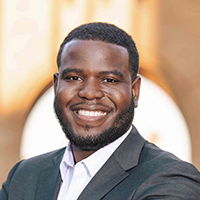
February 2, 2023
Matthew Clarke
Boeing School of Engineering Distinguished Postdoctoral Fellow, Department of Aeronautics and Astronautics, Massachusetts Institute of Technology
Accomplishing Sustainable Aviation Within Urban Ecosystems
Abstract:
The deployment of electric vertical/short takeoff and landing aircraft has been put forth as a solution for alleviating rising traffic congestion stemming from urbanization and on-demand delivery. A limited understanding of emerging energy storage systems coupled with the use of archaic tools for modeling unconventional configurations has however plagued the development of such novel aircraft. To compound problems, the precise impacts of introducing entire fleets of vehicles on the electric power grid, the implications for a finite supply of natural resources, and lastly the effects on human quality of living and wildlife have yet to be distilled. In this talk, I will discuss a collection of ongoing research efforts geared toward tackling many of the technical challenges that spur out of the interactions between the critical domains of noise and energy. This includes the development of computational approaches to 1) complement the experimental examination of battery-electric propulsion architectures and 2) generate accurate acoustic predictions of UAM aircraft performing realistic maneuvers. By quantifying the uncertainties and sensitivities of such complex systems, substantial progress toward sustainable aviation can be realized.
Bio:
Matthew Clarke is a Boeing School of Engineering Distinguished Postdoctoral Fellow in the Department of Aeronautics and Astronautics at MIT. His research focuses on aircraft design, aerodynamics, and aeroacoustics, with an emphasis on the analysis and optimization of electric vehicles for urban air mobility. Dr. Clarke is a Tau Beta Pi Fellow and earned his B.S. from Howard University in Mechanical Engineering and both his M.S. and Ph.D. from Stanford University in Aeronautics and Astronautics. He also serves the V/STOL Technical Committee of AIAA, where he is responsible for organizing the 2023 International Powered Lift Conference co-hosted with the Society of Automotive Engineers, the Vertical Flight Society, and the Royal Aeronautical Society. Before joining MIT, Dr. Clarke also worked as an aeroacoustics engineer at A3 by Airbus and briefly as a battery modeling data scientist at Toyota Research Institute in the Accelerated Materials Design & Discovery Division.
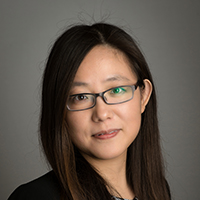
February 9, 2023
Minghui Zheng
Assistant Professor, Department of Mechanical and Aerospace Engineering, University at Buffalo
Robotics at the Intersection of Learning and Control
Abstract:
Robotics technologies are moving towards operating in unstructured environments with the capabilities of continuously learning from and collaborating with humans and other robots. This talk will discuss our recent studies on advancing such capabilities to address several fundamental limitations such as adaptability and customizability in robotics. The first part of this talk will be on human-robot collaboration with applications to e-waste disassembly, aiming for an economically viable recycling system for the remanufacturing industry. I will focus on task planning among humans and robots, human motion prediction with quantified uncertainties, and robotic motion planning. I will also touch on their applications in aircraft manufacturing and space exploration. The second part of this talk will focus on learning-based control for drones, where I will introduce a learning framework that enables a newly built drone to learn from existing ones despite their different dynamics and platforms. This aims to significantly reduce the design, testing, evaluation, and certification of drones that are uniquely customized for applications in their operating environments and facilitate the end-to-end design of new drones. I will conclude this talk with my research vision and future research plan in aerospace engineering.
Bio:
Dr. Minghui Zheng is currently an Assistant Professor in the Department of Mechanical and Aerospace Engineering at the University at Buffalo (UB). Before joining UB, she received her Ph.D. degree in Mechanical Engineering from the University of California, Berkeley in 2017. Dr. Zheng’s research interest lies in learning, planning, and control with applications to several areas that are of vital importance to robotics, manufacturing, and aerospace systems. Her research endeavors are supported by approximately $2M in funding from agencies such as NSF and DOE, and have been delivered in over 30 journal articles. She is currently an associate editor of the IFAC journal of Mechatronics, and has frequently and continuously served as the associate editor or program committee for several major conferences of her field such as the American Control Conferences. She received the CAREER award on learning-based robotic control from the NSF Foundational Research in Robotics program and the SEAS Early Career Researcher of the Year from UB in 2021.
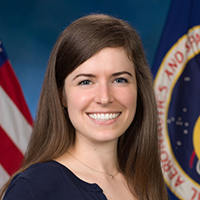
February 16, 2023
Emily E. Matula
Extravehicular Activity Instructor and Flight Controller, NASA Johnson Space Center (Leidos)
Closing the Carbon Loop in Human Spaceflight with Algae
Abstract:
The International Space Station (ISS) is the primary microgravity platform for long-duration spaceflight, with crewed missions lasting approximately six months. However, many of the required ISS life support systems are open loop, necessitating resupply launches every few months. When considering cost and payload mass, current launch capabilities render this approach unsustainable for missions venturing beyond Low Earth Orbit (LEO). Closure of consumable loops, specifically the carbon loop, are critical to reducing this resupply need. Therefore, I propose using photoautotrophs (algae) in life support systems as a bioregenerative approach to increase Earth independence. In my talk, I will review (1) the current life support methods addressing human physiological needs in space; (2) the potential mass, power, and volume savings by using a multifunctional bioregenerative life support system; and (3) the impact of a dynamic spacecraft cabin environment on algae metabolism. Finally, I will discuss my future research plan for continuing to characterize algal response to dynamic environments while expanding my focus to include species of extremophilic algae and supporting cultures through novel approaches to sustained gas/liquid contacting. Concluding with how this ongoing work would broadly benefit both spaceflight and terrestrial environments.
Bio:
Dr. Emily E. Matula is an EVA instructor and flight controller at NASA Johnson Space Center under the Leidos contract. Separate from her current role, her current research interests include using nanobubbles for sustained gas/liquid contacting for microgravity applications. Before joining Johnson Space Center, she earned her Ph.D. as a NASA Space Technology Research Fellow in 2019 at the University of Colorado in aerospace engineering (bioastronautics). There, her research focused on closing the carbon loop in crewed spaceflight using bioregenerative approaches, specifically algae. Prior to the University of Colorado, Dr. Matula earned her bachelor’s in mechanical engineering and master’s space engineering at the University of Michigan. Her awards include the AIAA Neil Armstrong Graduate Award and the University of Colorado’s John Vise Graduate Award for excellence in aerospace.
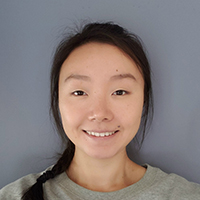
February 23, 2023
Sarah H.Q. Li
Ph.D. Candidate, University of Washington
Resource-centric and intelligent autonomy for aerospace systems
Abstract:
As the scale of autonomous operation grows in aerospace, an individual aircraft or spacecraft’s autonomous performance will be crucially impacted by the competition for resources and the interaction uncertainty between vehicles. Combining Markov decision process, game theory, and optimization, my research aims to intelligently coordinate multi-vehicle trajectory planning. In this talk, I will introduce the Markov decision process congestion game to resolve congestion in air traffic management and ride-hail. Next, building on robust dynamic programming, I will analyze how uncoordinated vehicle interactions impact the learning dynamics of an individual vehicle, and derive Hausdorff distance convergence results for diverging value iteration. I will end by discussing some upcoming challenges in aerospace and my approaches to tackling them.
Bio:
Sarah H.Q. Li is a Ph.D. candidate in Aeronautics and Astronautics Engineering at the University of Washington and has received her B.A.Sc. in Engineering Physics from the University of British Columbia. Her research combines game theory, stochastic control, and optimization to enable large-scale autonomous interactions in disruption-prone environments such as urban air traffic and orbital spaces. She is a 2020 Zonta International Amelia Earhart Fellow and a 2022 UW Aero&Astro Condit Fellow.
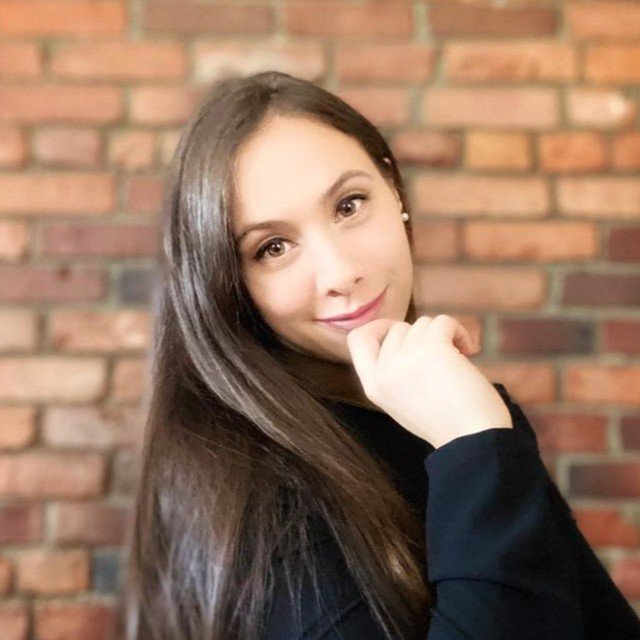
March 9, 2023
Giusy Falcone
Postdoctoral Fellow, Robotics Institute at Carnegie Mellon University
Autonomous Space Systems: Developing Missions that Can Reason and React
Abstract:
Today, the space industry is booming with exciting additions. However, the more ambitious the mission goals and the farther exploration takes us from Earth, the more ingenious, cost-effective, and safe solutions need to be engineered to enable such missions. To handle the increasing complexity, the next generation of space missions will require autonomous human-level decision-making in highly unknown or perturbed environments.
In this talk, I will present the prospects and challenges for developing autonomous and robotics systems that can dynamically evolve and modify with the environment. The talk will highlight how the system-level impact of autonomy integration and its combination with optimal control allows for an intelligent, dynamic, autonomous system capable of making rational decisions that consider both the safety and performance of the specific executed operations and the overall performance of the mission.
This approach is used to advance aerobraking, an atmospheric process used to slow down and insert a spacecraft into a low orbit around a planet, showing dramatic advancement in flight performance, risk, and cost. Finally, a generalization of the findings is presented in terms of necessary improvements for designing environment-aware decision-making algorithms, and the opportunities autonomy will provide for the next generation of space missions.
Bio:
Dr. Giusy Falcone is a Postdoctoral Fellow at Carnegie Mellon University’s Robotics Institute. She works on trajectory optimization for space applications in the RExLab group under the guidance of Prof. Zachary Manchester. In May 2022, she earned a Ph.D. in Aerospace Engineering at the University of Illinois at Urbana-Champaign under the supervision of Prof. Zachary Putnam. Her expertise lies in hypersonic and space systems; space guidance, navigation, and control; flight mechanics; mission design; trajectory optimization; artificial intelligence; and autonomous systems. Her research explores innovative techniques to enable low-cost, autonomous space missions capable of reasoning and reacting safely in a changing environment. She is the recipient of the 2022 AIAA Intelligent Systems Best Paper Award for her work in Autonomous Aerobraking Maneuver Planning using Deep Reinforcement Learning. She is also one of the selected participants of the 2022 Rising Stars in Aerospace (RSIA) Symposium and the Keck Institute for Space Studies Workshop “Revolutionizing Access to the Martian Surface.” In addition, Dr. Falcone is one of the recipients of several fellowships, including the Mavis Future Faculty Fellowship, the Graduate Student Service Award, the Robert Beatty Fellowship, and the Aerospace Engineering Alumni Advisory Board Fellowship.